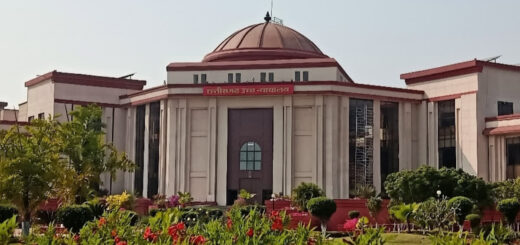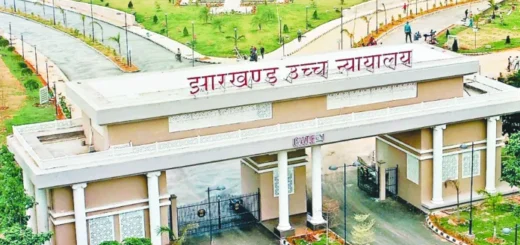The Supreme Court stated that the range of judicial review in contract issues involving the state or its agencies with private involvement is restricted.

The Supreme Court stated that judicial review regarding the State’s contractual relationships with private entities, especially concerning work scope and finances, is limited. This ruling came from Civil Appeals by a private company against a Madras High Court decision that addressed several Public Interest Litigations (PILs) related to Formula 4 Racing in Chennai, Tamil Nadu, which included certain directives. Justices P.S. Narasimha and Manoj Misra noted that the Sports Development Authority acts as a key Governmental body for promoting sports and supporting athletes. They emphasized that there is no claim of misuse of public funds or financial misconduct by the State through the SDAT. The Court highlighted that judicial review in these contractual matters is restricted, as shown by many previous decisions.
The Bench remarked that once the High Court confirmed that the decision to host the sports event was a policy matter, it should not have interfered with the specific terms of the Memorandum of Understanding (MoU) between the authority and the company.
AOR Gaurav Singh represented the Appellant, while AOR D. Kumanan represented the Respondents. Racing Promotions Private Limited, the Appellant company, sponsored and organized the Formula 4 championship, a series of motorsport races. In 2023, it signed a Memorandum of Understanding (MoU) with the Sports Development Authority of Tamil Nadu (SDAT) for three years to manage the event. The MoU outlined the responsibilities of both parties: the Appellant was to invest Rs. 202 crores, while SDAT was to contribute Rs. 42 crores for licensing, operations, road improvements, and other expenses. When the Tamil Nadu Government announced the fifth round of races in Chennai, several Public Interest Litigations (PILs) were filed in the High Court, raising various concerns.
The main issues in the PILs included public inconvenience, safety concerns, noise pollution, environmental harm, and questions about the transparency of public funds benefiting a private entity, the Appellant. The High Court chose not to challenge the Government’s decision to support motor racing as a sport. However, it noted that the Appellant, a private entity, was in charge of the event, with the State Government’s role limited to support. The court pointed out that all revenue and profits would go to the Appellant, with no share for the State Government as per the MoU. Consequently, the High Court issued certain directives that were later contested in the Supreme Court.
The Supreme Court, considering the facts presented, stated, “To ensure fair distribution of goods and services for the common good, the State has the power to create appropriate policies. Initially, these policies focus on the government identifying and expanding resources for the public benefit. At one point, to enhance capacity, governments even nationalized private resources for the public interest. However, it has been observed that the resources generated by the government were insufficient, and their management was often ineffective.” The Court noted that the case involves the organization of a sports event through a partnership between the Tamil Nadu State Sports Development Authority (SDAT) and a private company.
The Court remarked that issues like mutual obligations and the sharing of costs between the parties are not subject to review by the High Court in a public interest litigation. It further stated that expecting the State to take full responsibility for organizing such sports events overlooks the principle of public-private partnerships, which many governments worldwide adopt for effective governance, considering the State’s limited resources and the need for efficiency and expertise. “We believe the High Court made a mistake in issuing directions (iv), (v), (vi), and (vii), which are not legally valid,” it concluded. Consequently, the Supreme Court partially upheld the Appeals and annulled some of the High Court’s contested directions.
Cause Title: Racing Promotions Private Limited v. Dr. Harish & Ors. (Neutral Citation: 2025 INSC 252) Appearance:
Appellant: AOR Gaurav Singh, Advocates Theepa Murugesan, and Sanya Bhatia.
Respondents: AORs D. Kumanan, Preetika Dwivedi, Rakesh K. Sharma, Advocates C. Paramasivam, and Adviteeya.









